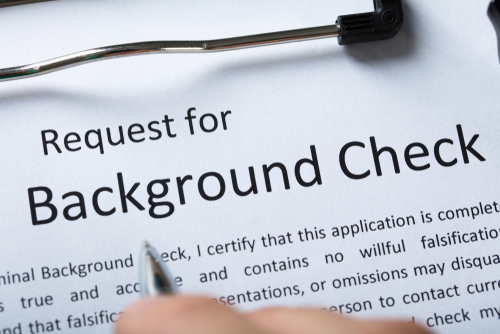Impact of Arrests That Don’t Result in Convictions on NJ Background Checks

If you are arrested and charged with a crime but your charges are later dismissed or you obtain an acquittal at trial, you may wonder whether your arrest and charges will show up on a background check for employment, housing, or admission to an educational program.
Do Criminal Charges That Resulted in Dismissal or Acquittal Show Up on a Background Check?
Fortunately, most employers, admissions officers, landlords, and other parties that might conduct a background check on you are more interested in whether you’ve been convicted of a crime. Many applications that ask about criminal history specifically ask “Have you ever been convicted of a crime.” If you were convicted on a criminal charge, then you are legally considered guilty of the offense, regardless of how much you may protest your innocence. However, if your criminal charges did not end in a conviction, that suggests that you were innocent of the charge or there was insufficient evidence to prove beyond a reasonable doubt that you committed the offense.
In most cases, though, criminal arrests and charges do show up on background checks that are conducted by commercial third-parties.
Can Prospective Employers Ask About Arrests?
New Jersey is one of the states that has adopted a “ban the box” law, which restricts the ability of prospective employers to request criminal histories from applicants for jobs. Under New Jersey’s Opportunity to Compete Act, an employer may not inquire into an applicant’s criminal record until after the employer has conducted a first interview with an applicant (unless the position is in law enforcement, corrections, homeland security, emergency management, or the judiciary).
However, once an employer has completed the first interview and engaged in some deliberation regarding an applicant’s suitability for a position, an employer can then ask about a candidate’s criminal history, including arrests and charges.
Seeking Expungement of Arrest Records in New Jersey
When you were arrested or charged with a crime but ultimately not convicted, you shouldn’t be held back by any stigma from an arrest record. Fortunately, in New Jersey, persons with records of arrests or charges that did not result in criminal conviction may be eligible to seek expungement of their record. Expungement is a process by which criminal records are sealed from public access and the arrest or charges is legally considered not to have happened.
If you have arrests and charges on your record that did not lead to a conviction (unless you pleaded guilty to another concurrent charge as part of a plea bargain, or you were found not guilty by reason of insanity or lack of mental capacity), you can immediately seek to expunge all such arrests and charges from your record. Since 2016, criminal defendants could apply to expunge their records at the same time as their charges were dismissed.
Otherwise, a person will need to follow the standard process for expungement, which involves obtaining a copy of your record and filing a petition with the court in the county where you were arrested or charged.
Read more: What Crimes Can Get Expunged In New Jersey?
Contact an Experienced Scotch Plains Criminal Defense Lawyer About Your Charges in New Jersey
Were you arrested or charged in New Jersey? The consequences of a conviction could be severe, leaving you with a permanent criminal record and possibly even sending you to jail. That is why you need to speak with a qualified criminal defense attorney as soon as possible about your case. The attorneys at Bramnick, Grabas, Arnold & Mangan, LLC have successfully represented clients charged in Union, Plainfield, East Orange, Irvington, and throughout New Jersey. Call (908) 325-5571 or fill out the online contact form to schedule a consultation with a member of our legal team. We have an office conveniently located at 1827 E. 2nd St., Scotch Plains, NJ 07076, as well as offices located in Westfield, Newark, East Brunswick, Clifton, Cherry Hill, and Elizabeth.
The articles on this blog are for informative purposes only and are no substitute for legal advice or an attorney-client relationship. If you are seeking legal advice, please contact our law firm directly.

